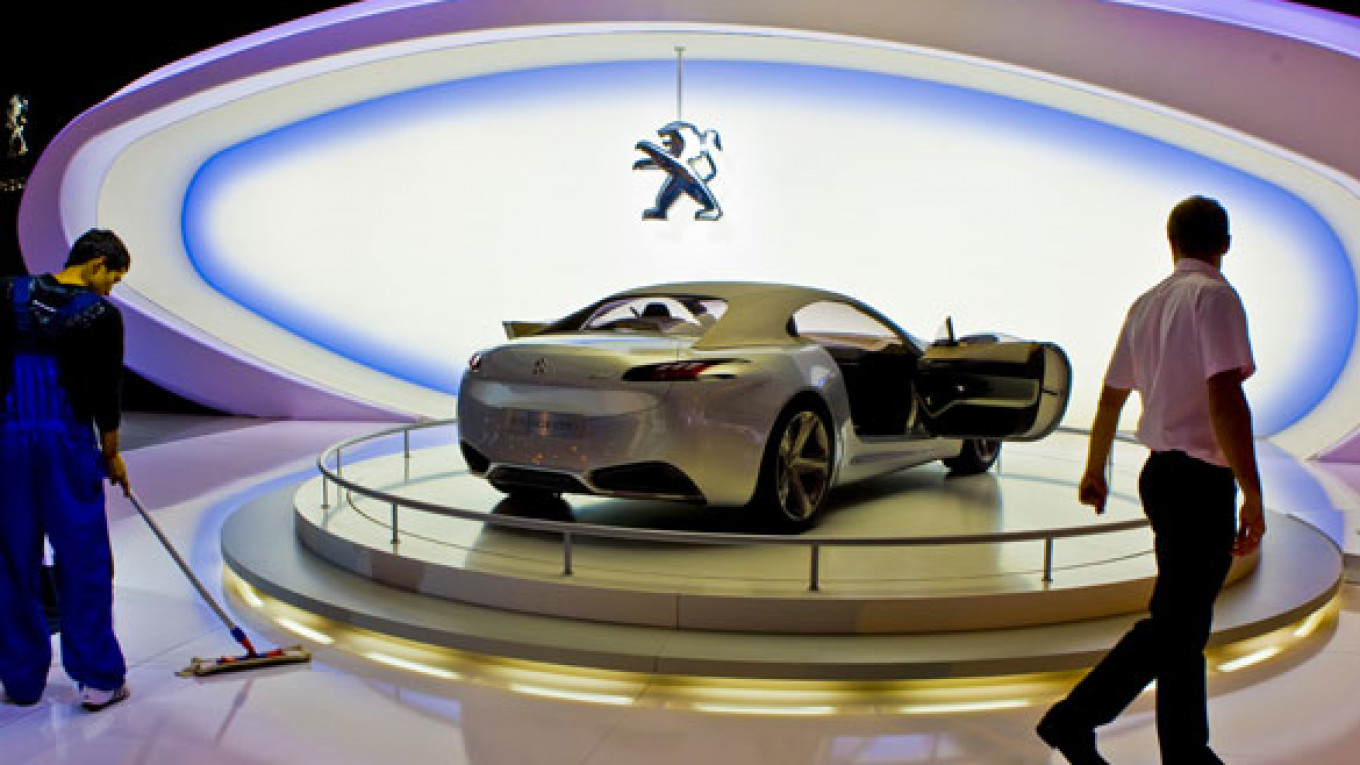The government will increase import duties on foreign cars to encourage investment in local manufacturing plants and boost domestic players, Prime Minister Vladimir Putin told state news channel Vesti-24 on Monday.
Speaking from behind the wheel of a locally produced yellow Lada Kalina Sport, Putin said he wanted technologically advanced overseas producers to work alongside Russian groups like Lada maker AvtoVAZ.
"Here's a timeline: In some years, we will gradually begin to raise the customs tariffs. … But we do not want to undermine your [foreign carmakers'] business in Russia — come to us and deploy production here," he said, while driving a leg of a 2,000-kilometer journey to Chita near the Chinese border.
"We're not, after all, WTO members, so we can afford to do it," he said, referring to the country's on-and-off bid to join the World Trade Organization.
Russia has increased import duties on new vehicles to 25 percent from 20 percent since early 2009 as it seeks to support local players, many of whom were forced to the brink of collapse by last year's financial and economic crisis.
Industry leader AvtoVAZ had to be bailed out by the state to avoid bankruptcy last year, but it has since lead a market recovery alongside France's Renault, which owns 25 percent in the company.
Germany's Daimler and Italy's Fiat have also entered the Russian market as partners to KamAZ and Sollers, respectively, while a string of others have opened or expanded manufacturing plants.
"We want you to gradually transfer technology skills, increase productivity … and the level of technical training for our specialists," Putin said, addressing foreign players. "And for our part, we will do our best to ensure a successful launch of your business."
The Industry and Trade Ministry has proposed extending discounts on car assembly plants that produce more than 300,000 foreign-branded vehicles per year, provided that at least 60 percent of the parts are locally made by the sixth year of operations, Vedomosti reported Monday.
Russia has already adopted a series of initiatives to boost local car and truck sales since the crisis, most notably a state-sponsored scrap program that rewards drivers of decade-old cars looking to trade in for newer models.
AvtoVAZ chief executive Igor Komarov said last week that he was now confident enough to raise the price of a Lada from September, while on Monday the group said it was asking staff to work on Saturdays to support higher demand.
Putin told his Vesti-24 interviewer that he was happy with the Lada Kalina, adding that he now thought the state had done enough to ensure that Russia produces high-quality cars.
"I think [the conditions to produce high-quality domestic cars] have been established. The Lada is compact, as you can see, not noisy. Everything works, Glonass works, all systems function," he said, referring to the country's satellite navigation system.
Kommersant reported Monday that the vehicle had to be replaced at one point during the journey after stones got into the gap between the wheel and the tire.
Overall, Russian car sales rose by 45 percent in July following a near halving of the market in 2009.
Groups such as Japan's Nissan and GM's Opel have predicted overall 2010 gains of up to 30 percent this year, while 1.5 million visitors are expected at Russia's annual international motor show.
(Reuters, MT)
A Message from The Moscow Times:
Dear readers,
We are facing unprecedented challenges. Russia's Prosecutor General's Office has designated The Moscow Times as an "undesirable" organization, criminalizing our work and putting our staff at risk of prosecution. This follows our earlier unjust labeling as a "foreign agent."
These actions are direct attempts to silence independent journalism in Russia. The authorities claim our work "discredits the decisions of the Russian leadership." We see things differently: we strive to provide accurate, unbiased reporting on Russia.
We, the journalists of The Moscow Times, refuse to be silenced. But to continue our work, we need your help.
Your support, no matter how small, makes a world of difference. If you can, please support us monthly starting from just $2. It's quick to set up, and every contribution makes a significant impact.
By supporting The Moscow Times, you're defending open, independent journalism in the face of repression. Thank you for standing with us.
Remind me later.






